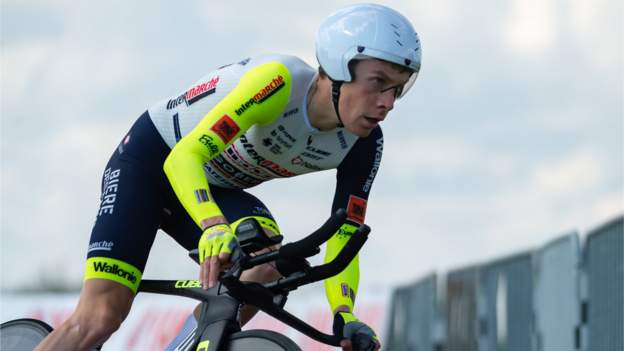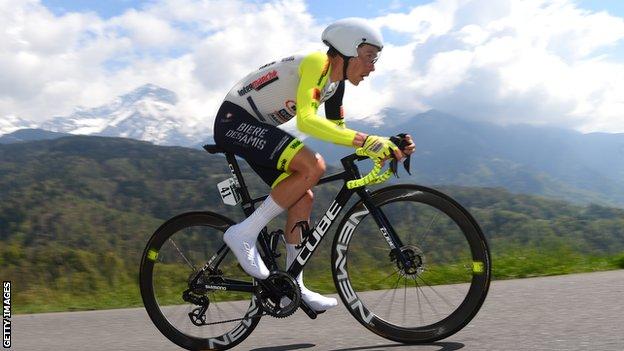
The Tour de France is not only the world’s most famous cycling race but also one of the most demanding events in elite sport.
This year’s route is almost 3,350 kilometres split up over 21 days of racing, with just three rest days during the entire race.
A total of 176 racers representing 22 teams will be expected to compete over stages which are considered flat and others that take in mountains with gradients that many would struggle to walk up.
The majority of the stages are more than 140km long and riders are set to spend several hours a day in the saddle – and as much time again on buses being transported to and from start and finish lines to their hotels.
After Team Qhubeka, Africa’s top cycling team, missed out on a World Tour licence, just two South Africans are set to represent the continent at this year’s Tour, which starts on Friday with a time trial in Denmark.
Former stage winner and yellow jersey-wearer Daryl Impey was forced out of the race by a positive Covid-19 test just a day before the Grand Depart, and has been replaced in the Israel-Premier Tech team, which includes Kenya-born four-time overall champion Chris Froome.
One man definitely lining up in Copenhagen is Reinardt Janse van Rensburg of the Lotto-Soudal team, which is targeting stage victories rather than the general classification leaderboard.
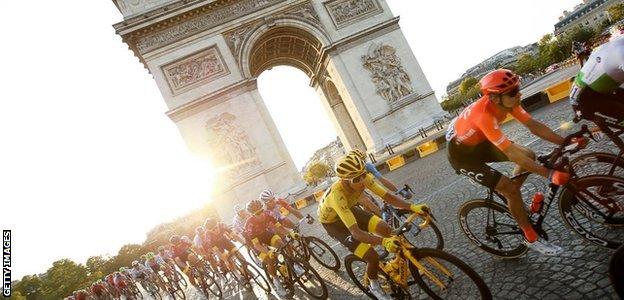
Louis Meintjes, meanwhile, is set for his fifth Tour, having twice finished eighth overall in the race in 2016 and 2017 – the highest placing by any African cyclist.
The 30-year-old, who is part of the Intermarche-Wanty-Gobert team this year, admits there is very little time to relax during the gruelling race.
“It’s very likely that you don’t get much downtime and if you do have extra time, you use it to study the race, look at the route and prepare for the next day,” Meintjes told BBC Sport Africa.
“A quick call (to family and friends) is the best you can do.
“Normally after waking up, you go straight to breakfast and pack your suitcase so that it’s ready to go to the next hotel. Then transfer to the bus to get to the start of the stage, then we’ll do a meeting and get ready for the stage.
“Next is signing on before the race starts, then it’s a few hours of racing, a shower and a quick meal on the bus and another transfer to the next hotel. A massage, dinner and back to bed.”
Even the massages are not the gentle affairs that most of us are used to.
“You get used to them, but it’s not a nice and relaxing thing,” Meintjes explained.
“It’s what we do for months, and to be better for the next day. Most of the days, it’s quite painful actually.”
Teamwork needed
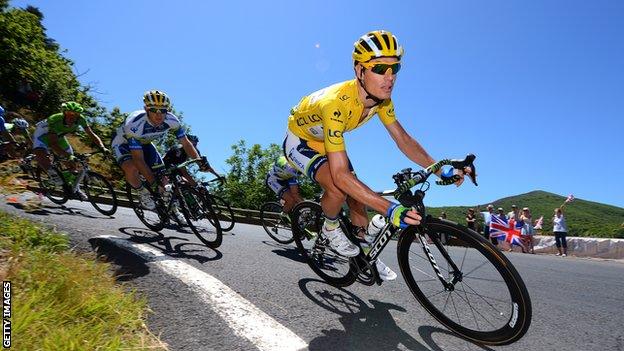
As well as the daily effort to reach the final finish line on the Champs Elysees in Paris, riders also need a solid team around them in the peloton.
Cycling teams have a lot of backroom staff including coaches, managers, physiotherapists and masseurs, with Meintjes’ Intermarche-Wanty-Gobert outfit having named 25 people to support their eight riders.
On the road during the race, the riders not only have to work together but also develop the tactics to suit each day’s challenge.
Meintjes admits that in order to win even a stage, let alone the overall title, it takes a mixture of individual ability and teamwork.
“It’s a bit strange and it’s different from a lot of other sports,” he explained.
“It does depend a lot on the individual and how good he is, but the team around you can make a really big difference. If you’re in contention fighting for the win, then you really need a strong team around you.”
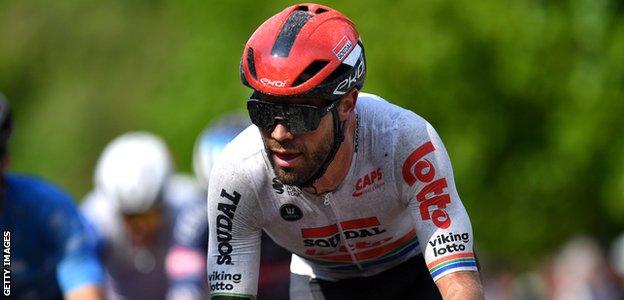
Picking the make-up of the team for the longer Grand Tour races – the Giro d’Italia, Tour de France and Vuelta a Espana – is a tactical choice, with different teams prioritising different things.
For, even thought it may seem odd, not every team starting the race aims to win the overall title.
Some will be looking for stage victories on the flat stages and build a squad of riders around those with sprinting expertise, while others may target the more mountainous days and so name strong climbers.
“It’s a big decision that teams have to make when they make their selection,” Meintjes said.
“Are they going to focus more on the climbing stages, more on the sprint stages, more on GC (general classification) or breakaways? That would all mean a different lead rider.
“So the team really has to spot their opportunities, look at the riders they have and the strengths they have, and where they can compete.
“The fight to get selected for the Tour also depends on the strategy of the team.”
Meintjes keen to stay in the fight
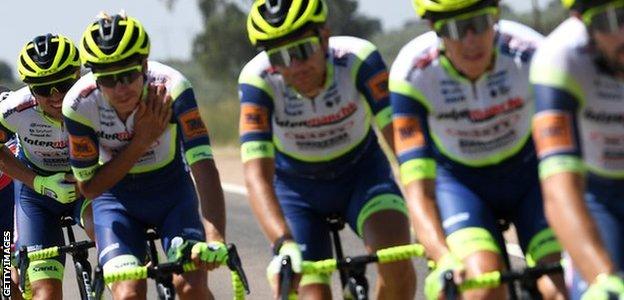
Meintjes also admits that while the Tour de France is the one race that grabs the most attention globally, success in cycling can take many different guises.
The Pretoria-born rider finished 14th in the general classification and, after ending sixth in the Criterium du Dauphine this month, is again looking to stay on the frontrunners’ coat-tails.
“Very few riders can realistically say they want to win the Tour, and there are 100 others in the bunch that have to look for something else that can bring them some kind of success or exposure,” he added.
“For most of us, there’s a lot of results along the way that can make our careers.
“Definitely a stage win would be absolutely amazing. But unfortunately, I’m not one of the fastest riders. So if I want to win a stage, I would have to arrive alone, basically.
“In that perspective, GC is almost easier because I just have to make sure I stay with them (the leaders). I don’t necessarily have to get ahead of them when I cross the finish line.
“If I can just make sure I get the same time every day, then I’m still in the fight for GC.”
